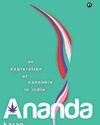
AS YASMEEN LARI LOOKED out the car window across the Siran Valley in northeastern Pakistan, she grieved for what was no longer a lush vale with rolling green hills, trees and mountains. It was October 2005, and the catastrophic earthquake that had killed some 79,000 people in Pakistan, India and Afghanistan a week earlier had reduced the valley to mud and rubble.
The 65-year-old architect was there to help lead the reconstruction of settlements, but she had never done disaster work before. Lari was filled with anticipation after a two-hour flight from Karachi to Islamabad, Pakistan’s capital, followed by this five-hour drive.
Darkness had fallen before her driver pulled into a dimly lit army camp where the military rescue operation was based; at 1,500 metres it was safer from aftershocks and rock slides than lower ground. When she stepped out of the car she was taken to the commanding officer, who talked to her about the villages that needed immediate help. The enormity of the task ahead hit her full force.
Lari, who had become Pakistan’s first female architect in 1964, was renowned for designing slick towers of glass and concrete. But here, she’d be drawing plans for earthquake-resistant homes using stone and timber debris. Working from a rough cottage near the camp, she’d spend the next four months working with volunteer architects and engineers from Pakistan and abroad.
She would send her drawings with the volunteers, who walked through difficult terrain to reach mountain hamlets. There, they’d assist displaced families with sorting debris and building new and improved homes, even as temperatures plunged and snow began to fall.
This story is from the November 2023 edition of Reader's Digest India.
Start your 7-day Magzter GOLD free trial to access thousands of curated premium stories, and 9,000+ magazines and newspapers.
Already a subscriber ? Sign In
This story is from the November 2023 edition of Reader's Digest India.
Start your 7-day Magzter GOLD free trial to access thousands of curated premium stories, and 9,000+ magazines and newspapers.
Already a subscriber? Sign In

ME & MY SHELF
Siddharth Kapila is a lawyer turned writer whose writing has focussed on issues surrounding Hinduism. His debut book, Tripping Down the Ganga: A Son's Exploration of Faith (Speaking Tiger) traces his seven-year-long journey along India's holiest river and his explorations into the nature of faith among believers and skeptics alike.

EMBEDDED FROM NPR
For all its flaws and shortcomings, some of which have come under the spotlight in recent years, NPR makes some of the best hardcore journalistic podcasts ever.

ANURAG MINUS VERMA PODCAST
Interview podcasts live and die not just on the strengths of the interviewer but also the range of participating guests.

WE'RE NOT KIDDING WITH MEHDI & FRIENDS
Since his exit from MSNBC, star anchor and journalist Mehdi Hasan has gone on to found Zeteo, an all-new media startup focussing on both news and analysis.

Ananda: An Exploration of Cannabis in India by Karan Madhok (Aleph)
Karan Madhok's Ananda is a lively, three-dimensional exploration of India's past and present relationship with cannabis.

I'll Have it Here: Poems by Jeet Thayil, (Fourth Estate)
For over three decades now, Jeet Thayil has been one of India's pre-eminent Englishlanguage poets.

Orbital by Samantha Harvey (Penguin Random House India)
Samantha Harvey became the latest winner of the Booker Prize last month for Orbital, a short, sharp shock of a novel about a group of astronauts aboard the International Space Station for a long-term mission.

She Defied All the Odds
When doctors told the McCoombes that spina bifida would severely limit their daughter's life, they refused to listen. So did the little girl

DO YOU DARE?
Two Danish businesswomen want us to start eating insects. It's good for the environment, but can consumers get over the yuck factor?

Searching for Santa Claus
Santa lives at the North Pole, right? Don't say that to the people of Rovaniemi in northern Finland